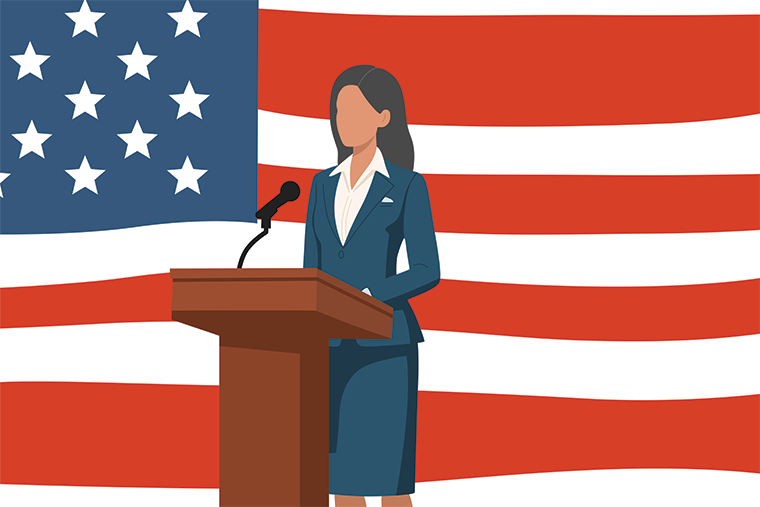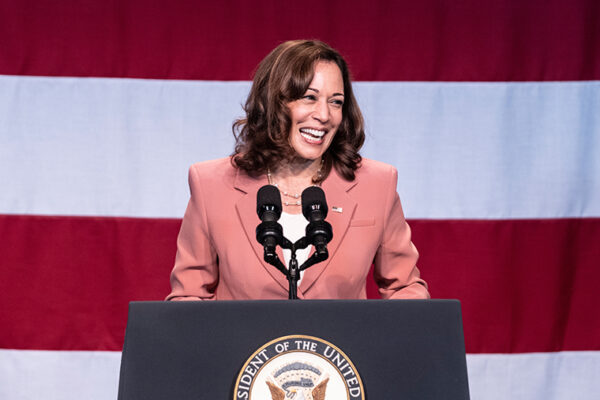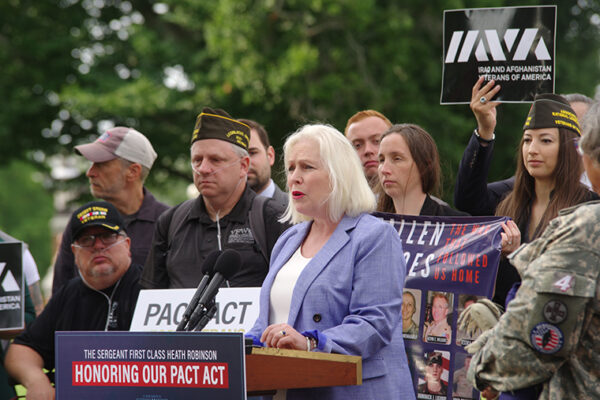In Missouri, women hold only two of the 10 seats in the U.S. House and Senate (20%), 55 state legislature seats (28%) and no statewide elected executive seats, according to the Center for American Women and Politics. Illinois fares somewhat better, with seven women among the 19 seats in the U.S. House and Senate (37%), 76 women in state legislature seats (43%) and two women among the six statewide elected executive seats.
While both states are in line with nationwide averages, they still have a long way to go to achieve equity in women’s representation. A new program offered at Washington University in St. Louis aims to change that.
EmpowHer is a 1.5-day program — Aug. 23 and 24 — designed to equip women with the cutting-edge knowledge and data resources needed to run a successful campaign and represent their constituents effectively. The cost to participate is $150, but fees can be waived for those in need.
EmpowHer will bring together world-class researchers and practitioners to share their expertise on running campaigns, optimizing strategies, understanding constituents and navigating the unique challenges women face in political office.
Perhaps most importantly, the program aims to build a cohort of women who can support one another when they do run for office, according to program coordinator Betsy Sinclair, a professor of political science in Arts & Sciences at WashU.
“This program is for women who are interested in running for public office, either now or later in their lives,” Sinclair said. “Running for office is an incredibly courageous act — it means that you are committed to building a better community, a better democracy. If you are curious about running for office, you should come and learn more.
“Our goal is to inspire some of our participants to run for office — whether it’s their local school boards, city councils or Congress — and prepare them for success.”
Inspiring next generation of political leaders
According to Sinclair, women’s representation matters because women legislate differently. Numerous studies and evidence from countries with higher female participation in politics confirm that having women in politics leads to an increase in attention on issues that matter most to women, as well as more equitable policies, laws and even taxes.
In recent years, women have run for president, including this year’s Democratic nominee Kamala Harris, and several elected women in Congress — such as Lauren Boebert, Alexandria Ocasio-Cortez, Liz Cheney and Marjorie Taylor Greene — have become household names. Despite the growing prominence of women in American politics, though, there is still a significant gender gap in political ambition, Sinclair said.
“We believe that a program that is geared specifically toward women, giving them the tools and support system to run, will have a transformative effect on the ambition of our students, so that they will run — and win,” Sinclair said.
EmpowHer is cohosted by WashU’s Department of Political Science and its Weidenbaum Center on the Economy, Government, and Public Policy. Learn more about the program.



